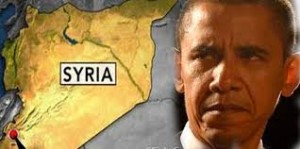There is something bizarre about the debate over how the United States should respond to the Syrian regime’s use of chemical weapons against its own people.
President Barack Obama has said that use of chemical weapons by the regime would cross a “red line” and be a “game-changer.” There are bipartisan calls in Congress for a response; the Pentagon is preparing options that include commando raids to secure chemical stockpiles and strikes on Syrian airplanes.
But as evidence mounts of toxic attacks, Obama is waffling, demanding detailed proof of the attacks that is almost impossible to come by. The president clearly wants to avoid getting more involved in the Syrian maelstrom.
He’s right to be cautious, but not for the reasons the White House is putting forward. He should be doing more to help CIA-vetted Syrian rebels, but as part of a broad (and still missing) strategy for the region — not just as a reaction to any chemical-weapons attacks.
Don’t get me wrong. I don’t mean to diminish the horror evoked by the image of chemical attacks against civilians. I have visited Halabja in northern Iraq, where, 25 years ago, thousands of Kurds were murdered when Saddam Hussein’s helicopters blanketed the town with poison gas.
But more than 70,000 Syrians have been killed in the past two years by conventional weapons, compared with a few in these suspected chemical attacks. Bashar al-Assad’s war crimes include bombing and indiscriminate shelling of cities, along with Scud missile attacks on defenseless civilians. Yet this slaughter has not been perceived as crossing any red line.
The Syrian conflict is spilling across borders, threatening Iraq, Lebanon, Jordan, Turkey and Israel. Still no administration red lines.
Until now, the White House has refused to provide even CIA-vetted opposition leaders with weapons that could repel Assad’s bombs, Scuds and heavy artillery. Nor has it given more than a very limited green light for its allies to provide heavy weapons. Meantime, jihadi groups have had little trouble getting weapons and cash from rich Gulf Arabs, which enables them to attract more fighters to their cause.
Many Syrian opposition fighters have told me bitterly that the chemical-weapons red line was only Obama’s excuse for doing nothing so long as Syrian civilians were killed by conventional bombs instead of gas.
So the issue of chemical-weapons use must be handled carefully.
Before this past week, there were three episodes in which chemical weapons were believed to have killed dozens in Syria. On Thursday, the U.S.-based Syrian Support Group reported two more attacks with chemical-filled rockets on the town of Daraya, eight miles southwest of Damascus, sending 130 people to hospitals with muscle spasms, bronchial spasms, headaches, dizziness and vomiting.
Clearly, Assad is using these attacks to terrify Syrian civilians. And no doubt, he is also probing to see if Obama will abandon his red line. Iran, too, is watching, since Obama famously warned that any development of nuclear weapons in that country also would cross an American red line.
If Obama confines his response to legalistic demands, this would signal to both Damascus and Tehran that Assad has a strong chance of surviving. It would indicate to the region that Assad can probably wait out the Americans and their allies, even as his country disintegrates, jihadis gain strength and Syria’s sectarian war spreads around the region. It also would prove to Russia’s Vladimir Putin that he was correct to back Assad despite the risks.
But a military response that is limited to the chemical-weapons issue also would be greatly mistaken. The options are dicey, and there is no way to secure Assad’s chemical stockpiles in the midst of a civil war.
Far better to recognize these attacks for what they are — a glaring signal that the United States must recalculate its entire strategy in the very near term. The best remaining chance of removing Assad is to convince the military commanders around him that the United States is finally serious about wanting him gone. Only then might some turn against their leader.
At a meeting last weekend, Washington pledged to pressure its allies — meaning Qatar and Saudi Arabia — to channel all military assistance through the umbrella Supreme Military Council, headed by Gen. Salim Idriss. This offers a last chance to strengthen moderate fighting groups against the jihadis. It might even grab Moscow’s attention and persuade some elements of the Syrian government to start negotiations.
The best way for Obama to react to Assad’s vicious chemical-weapons feint would be to show the world that he has finally decided to take the lead in pushing for a resolution to the Syrian disaster. But other countries won’t pay attention to U.S. entreaties unless the White House puts money, muscle and weapons into the game.
Originally published in the Philadelphia Inquirer


Leave a Reply
You must be logged in to post a comment.